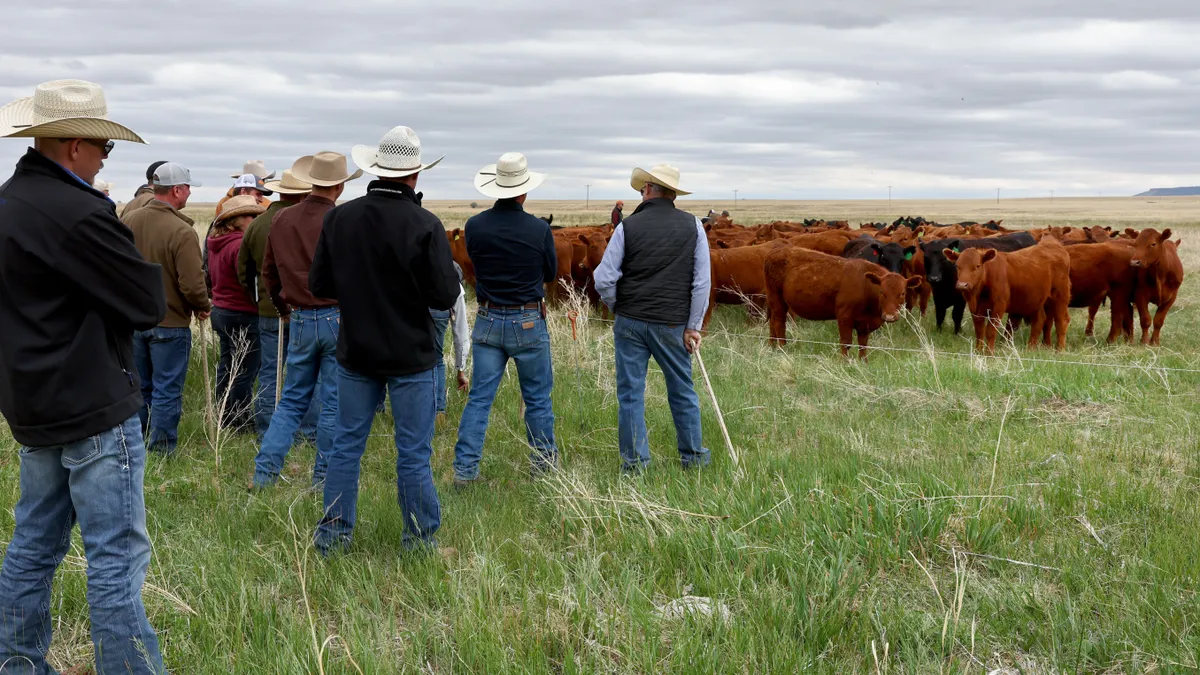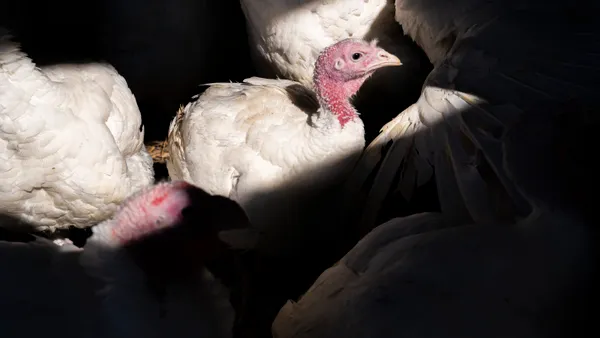Dive Brief:
- Nestlé will partner with startup Grassroots Carbon to pay ranchers for sustainable grazing and other regenerative land management practices, part of the CPG's effort to decarbonize its beef supply chain.
- The partnership will help ranchers measure the amount of carbon captured when transitioning to more sustainable methods such as rotational grazing and cover cropping, the soil carbon credit startup said in a release Wednesday.
- The collaboration aims to incentivize farmers to enhance soil health and sequester carbon from the atmosphere. Nestlé's investment offsets the cost of implementing regenerative land management practices, the release said.
Dive Insight:
Nestlé has committed 1.2 billion Swiss francs, or around $1.29 billion, by 2025 to accelerate climate-smart farming practices across its global supply chain. Earlier this month, the company said it would expand regenerative agriculture practices for wheat used in its DiGiorno pizza brand.
As climate change intensifies, grasslands are considered a more resilient form of carbon sinks compared to forests, according to a study from the University of California, Davis. With the current path of carbon emissions, grasslands will be the only viable net carbon dioxide sink through 2101.
"[G]rasslands store more carbon than forests because they are impacted less by droughts and wildfires,” Pawlok Dass, the study's lead author, said in a statement. “This doesn’t even include the potential benefits of good land management to help boost soil health and increase carbon stocks in rangelands.”
Certified measurement of regenerative practices can allow ranchers to sell carbon credits and diversify their revenue streams. Grassroots Carbon has dispersed over $2 million in payments to ranchers for regenerative land management since January 2022, and has a pool of over 20 carbon credit buyers.
Nestlé has expanded use of sustainable grazing within its dairy supply chain. The company said on its website it has worked to improve manure management, use more cover crops to protect soil and implement practices like silvopasture, where trees are introduced into areas used for livestock grazing.











